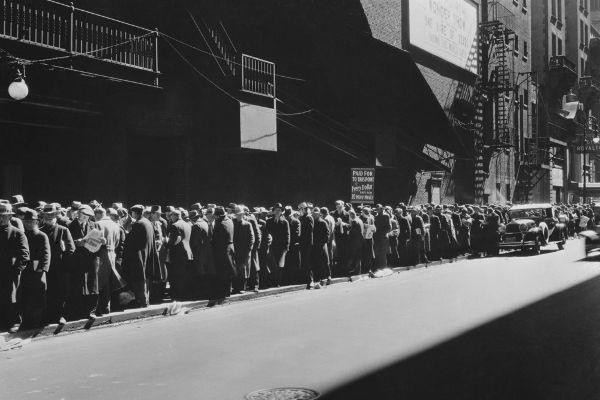O capitalism it is the socioeconomic system in which the means of production and goods are predominantly privately owned. Its main objective is to obtain maximum profit and accumulation of wealth.
Generally, people divide capitalism between the bourgeois, who are the owners of these productive means. (the bosses), and the proletarians, who are the workers of the city and the countryside who live at the expense of their salary. There are also, in this case, those people who live on the fringes of capitalism, that is, they do not even fit as bourgeois nor as workers, like the beggars, the unemployed, the miserable and others, the so-called “lumpen proletarians”.
Two of the main basic characteristics of capitalism are the law of supply and demand and the free competition. They express, in a way, the role of the market in regulating and managing the direction of the economy.
The law of supply and demand states that when the availability of a product (supply) is very large, its prices tend to be lower. On the other hand, when demand is much greater than availability, prices tend to increase, that is, if a product is sold in large quantities and no one wants to buy it, it should become cheaper to attract the consumers; in the same way, if a product is in high demand but there is not a large amount of it in stock, the tendency is for it to become more expensive as it becomes more valuable.
But this law does not always work in society. An example is Easter eggs, which even when sold at a time when the offer is greater, they are more expensive. In fact, even having the same composition and amount as a chocolate bar, they become more expensive, as they are added, in addition to its cost value, symbolic capital, which is the valuation of goods for cultural or other reasons. reasons.
already the free competition is the idea that different companies in the same sector of the economy, when competing with each other, provide a reduction in prices and improvement of what is offered, as the consumer will opt for those products or services that offer the best quality for the lowest price possible.
However, this conception does not always work either. There are companies that unite, forming cartels, which is a practice in which different organizations establish the same price on the product. In many cases this is considered a crime, but there are other ways to do it. One of them, very common, is through the merger between two companies, which is a more recent trend in the capitalist economy that has spread since the 20th century.
There are those economists who defend the idea that it is these two concepts presented above that should regulate the course of the economy. are the calls liberalists or neoliberals, who believe that society should be regulated by the market.
On the other hand, there are those who believe that the State (the public power) is the one who, in fact, should control the direction of the economy through social reforms, public actions and the presence of state-owned companies in some sectors. Those who defend this idea are social democrats and the Keynesianists.
After the end of the Cold War and with the growth of the Globalization process, the capitalist system has spread throughout virtually the entire world, being the political, social and economic system of almost all countries. In some places, such as the United States, Europe and Japan, it manifests itself in a more advanced way, with more advanced technology and more consolidated structural systems. In others, as in underdeveloped and emerging countries, it presents itself in a partial or even incomplete way, with purely rural and little industrialized societies.
By Rodolfo Alves Pena
Graduated in Geography

